No products in the cart.
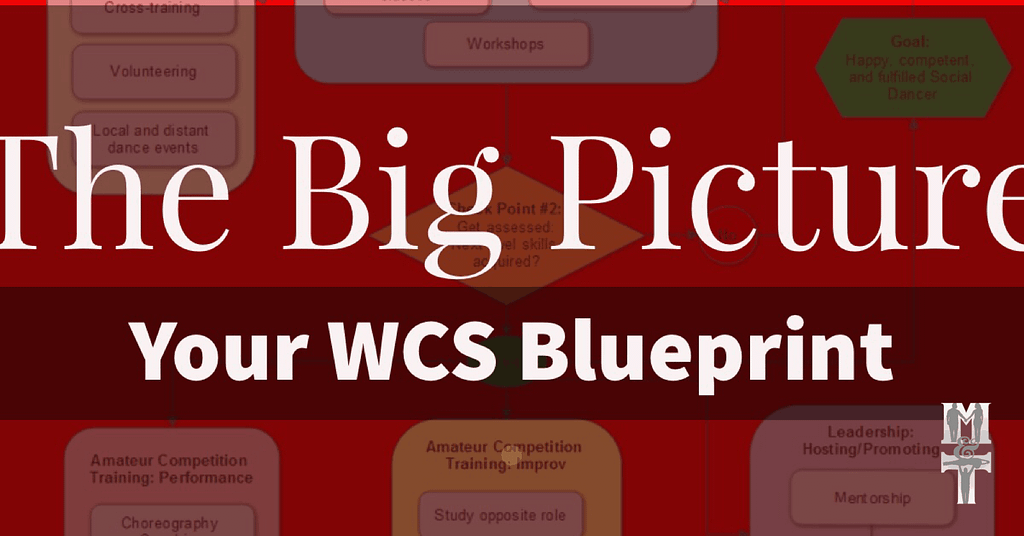
The Big Picture: Your WCS Blueprint
Reading Time: minutes remaining
It’s hard to see the forest for the trees. Beyond your local classes, what else is out there? And how do you know if it's for you?
Wouldn’t it be nice if there was a diagram or flowchart showing all the components of this West Coast Swing world and how they fit together? Showing all the choices you have, depending on your goals? Ever wonder what’s the pathway to progress to the top?
Well, I have a treat for you.
Ready to get nerdy?
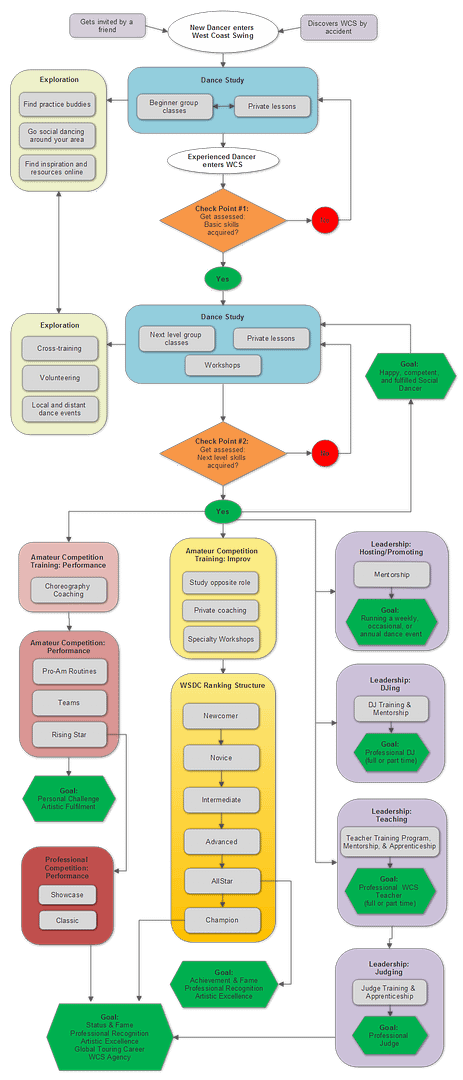
I think it’s pretty self-explanatory, but here’s some commentary.
This flowchart depicts the typical development journey of most dancers. Of course, there are always exceptions.
Here’s a great article for those looking for more details and guidance:
Create Your Dance Progress Plan
All goals are valid
It is perfectly acceptable to be an eternal student and social dancer. You don’t need to have competitive aspirations in order to be fulfilled by West Coast Swing. When I first started going to events, my dream was to become an AllStar. I never wanted to be a Champion because I never intended to turn WCS into a career – I wanted the unapologetically selfish joy of artistic excellence. It’s perfectly valid to want to be one of the best, but not aspire to the demands of being a Champion. It’s also perfectly ok to develop your dance to a safe and sustainable level, and then explore other ways of participating in the community such as DJing or volunteering.
Live instruction is always the most ideal, but...
I distinguished “Study” from “Exploration” in order to point out that even though you learn through experience (social dancing etc.), nothing can replace actual pedagogy you get from live instruction. There is no glory in being auto-didactic, and YouTube (while great for inspiration) is a horrible place to learn to dance, and social dance practice is not enough. Love your YouTube? Read this article to find out what you can learn WCS from YouTube.
BUT... the Swing Literacy online training programs are the exception, because they are not just a bunch of videos - they are multi-media courses that thoroughly fill in the gaps where other instruction can't reach. During the pandemic, we helped thousands of dancers drastically improve their dance (even connection skills) without partners or ever touching them in person, to the point where their their old dance partners were shocked and their competitive success skyrocketed when events returned. Online Swing Literacy training augments and accelerates any live in-person lessons you take, at any level.
Private lessons and group classes work hand-in-hand
Each of these modes of learning have significant advantages, but on their own, they leave the student with deficiencies that will affect their progress and enjoyment.
Only taking private lessons causes you to miss out on many of the cultural skills and expectations, not to mention the adaptation skills you need for social dancing.
Only taking group classes usually leaves the student starving for feedback, often developing bad habits that go unchecked and lead to injury, discomfort, and frustration. Everyone needs both to have a balanced diet of instruction.
Discover more about how Private Lessons can help you
Learn the advantages and directions for Your Ideal Westie Diet
Assessment should be a priority
Many dancers don’t experience a checkpoint, and are allowed to progress to the next level without actually earning it. This is what causes delusion of skill level which can lead to:
- disappointing audition results,
- disappointing competition results
- frustration with inability to make new material work properly.
Collateral damage includes other students who dislike dancing with them because they are unsafe/incompetent, which deters the competent students from coming to those classes. All students need a teacher to provide the perspective needed to determine if and when they are ready for the next level.
Assessment is a massive topic included in the Swing Literacy Teacher Development Program. Teachers learn how to analyze movement based on a rubric of criteria, and express their findings in a way that is enlightening and empowering for the student.
Competition is optional and limited in scope
Because West Coast Swing does not globally use criterion-referenced evaluation for level progression (yet…), the only universally recognized progression is the WSDC ranking system. But points do not tell you which skills you have acquired and how much you’ve improved – they only tell you how you danced for 5 minutes compared to other people’s 5 minutes. Which means this ranking system is only peripheral, not central, to developing your WCS. You don’t *need* to compete in J&J’s in order to improve. Other forms of competition and performance are available at all levels and ages.
Specialized activities require training
- Want to strive to be AllStar? Don’t abstain from workshops. Get competition coaching.
- Want to do a routine? Don’t DIY: get choreography and coaching.
- Want to become a DJ? Don’t just plug in a playlist – get training and mentorship.
- Want to run a dance workshop/party/event? Don’t just “wing it” – ask for (and listen to) advice from people who have done it (and been successful) before.
- Want to become a teacher? Don’t underestimate this role – you’ve gotta get training.
- Want to be a judge? Ask yourself why. Then train to be a teacher first so you learn how to evaluate.
You must be logged in to post a comment.
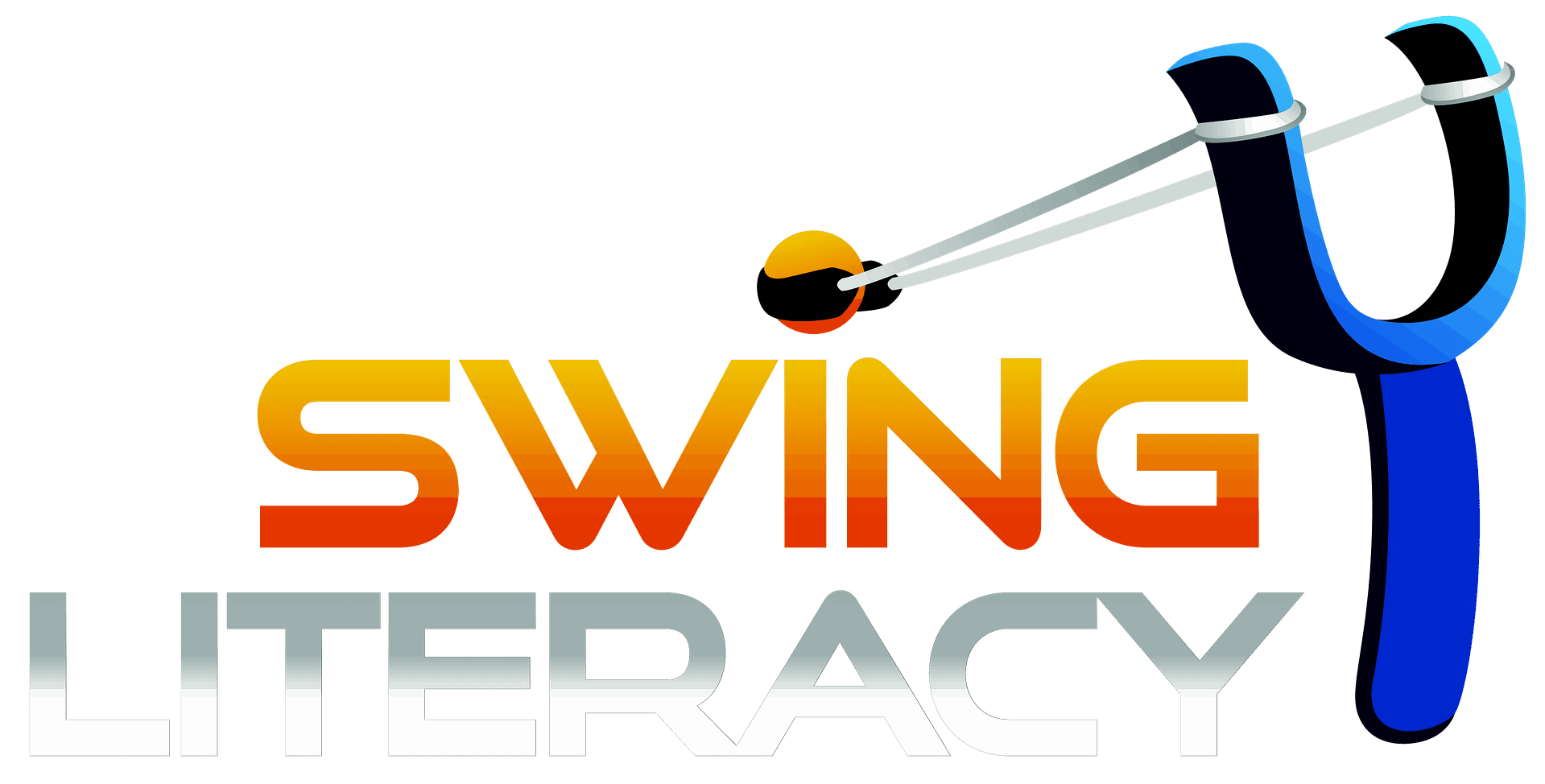
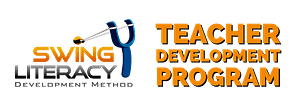

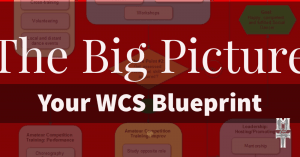
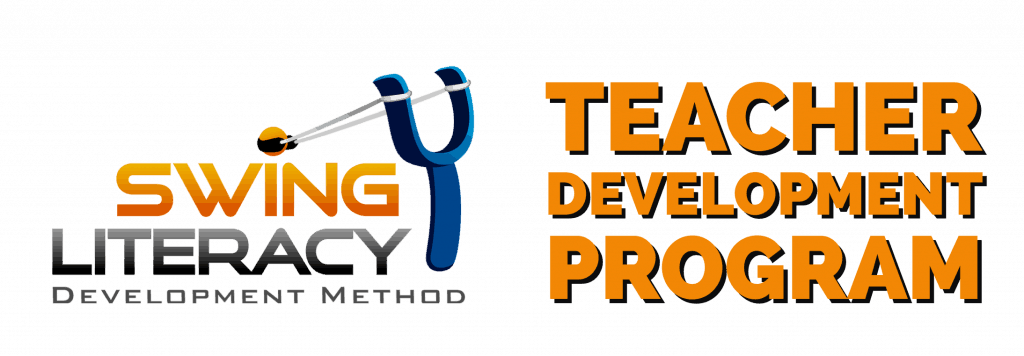
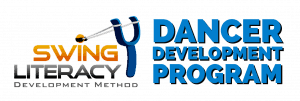
Brilliant website, but where can I find out about intensive courses you offer, when and where they are, and how to sign up?
Thanks for the great question, Daveed! For more info on online training available, check out http://www.swingliteracy.com. If you are looking for live intensives at events, you can see our event calendar here: https://www.canadianswingchampions.com/about-myles-tessa/calendar/
I’m already looking forward to discovering what dance workshops and conventions are available (once social distancing isn’t a THANG). Especially curious about the ones recommended by Tessa and Miles….both for WCS and other dance styles.
Great article on goalsetting and expectations.
I agree that assessment is vital to good technique, posture, execution of moves etc. Although sometimes frustrating to hear it is always beneficial.